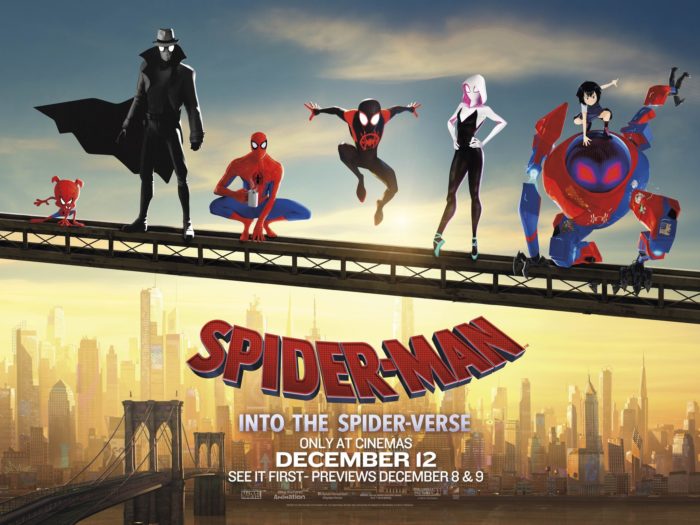Bill Maher is Still Wrong about ‘Same Thing’ Superhero Movies
Two months ago, liberal pundit Bill Maher reveled in his ignorance about superhero fantasy. Recently he offered more of the same.
ComicBook.com translated the comedian’s latest rant.
Apparently, Maher’s “sequel” doesn’t do much to improve on the original:
Can we stop pretending that the writing in comic books is so good? Oh, please. Every superhero movie is the same thing — a person who doesn’t have powers, gets them, has to figure out how they work, and then has to find a glory thing. Justice League, glowy thing. Iron Man, glowy thing. Spider-Man, glowy thing. Captain America, glowy thing.1
As I explored back in November, Maher insists on blasting a popular art form he clearly knows little about. Nothing in his shallow screeds shows any familiarity with classic “comic book” superhero fantasy. That’s to say nothing of the contemporary on-screen adaptations. Lately, virtually all of the Marvel and DC superhero stories have moved beyond mere origin stories and “glowy things.”
Do superhero movies fight the evil Dr. Formula?
- Iron Man creates a suit, has crisis of conscience, and fights abuse of his own technology. Humbles himself. Learns to be a team player. Struggles with PTSD. Tries to create hero android, fails, tries again, succeeds. He repents of his own lone-hero complex and overcorrects, insisting the nation’s governments put his team “in check.” Fights longtime ally. Then, at the end of Infinity War, he faces his worst nightmare—total defeat by Thanos.
- Spider-Man spent his entire last (rebooted) solo live-action film learning to survive his powers, while living up to his high-school responsibilities. Its creators skipped the origin story. They skipped any “glowy things.” More recently, Spider-Man: Into the Spider-Verse won near-unanimous acclaim from fans and from critics who actually paid attention.
- Captain America: has single-handedly revolutionized superhero “expectations.” Sure, his first film had a literal “glowy thing.” His second film did not. Instead it offered a pop-level political and spy thriller that asked/answered very modern questions about government surveillance. Third film—very similar. That’s to say nothing of Cap’s other challenges in the Avengers team-up films.
Maher is slightly closer to the truth regarding the lackluster Justice League film. But he’s way off, if you consider the DC comics, graphic novels, and animated series and films. I dare anyone to claim The Dark Knight trilogy repeats the same “origin story/glowy thing” tropes. Even critics who (unfairly) despised the Zack Snyder DC films (Man of Steel and Batman v Superman) could not accurately call them “formulaic.” Instead, most critics claimed these films did not follow the superhero movie “rules.”
So when Maher feigns to criticize the “same old formula” of superhero movies, he’s just plain wrong.
These stories don’t follow a boring formula.
He does.
Origin of a new villain: ‘Grown-Up’ Man
Maher’s formula gets even duller when it includes “everyone who disagrees with me is IMMATURE AND UNREALISTIC” complaints.
Bragging that you’re all about the Marvel Universe is like boasting your mother still pins your mittens to your sleeves. You can, if you want, like the exact same things you liked when you were ten but if you do, you need to grow up.2
When I was ten, I read fairy tales in secret and would have been ashamed if I had been found doing so. Now that I am fifty I read them openly. When I became a man I put away childish things, including the fear of childishness and the desire to be very grown up.
— C. S. Lewis3
From my original article at SpecFaith:
Maher also seems ignorant of the best purpose of fantasy. These stories are not meant to show “reality” as we see it. Instead, they show reality as it is—our eternal reality that is epic and miraculous, and not limited to our daily chores and “grown-up” cliques and squabbling and dullness.
Here we’re again compelled to quote the childlike-yet-mature C. S. Lewis:
Critics who treat “adult” as a term of approval, instead of as a merely descriptive term, cannot be adult themselves. To be concerned about being grown up, to admire the grown up because it is grown up, to blush at the suspicion of being childish; these things are the marks of childhood and adolescence. And in childhood and adolescence they are, in moderation, healthy symptoms. Young things ought to want to grow. But to carry on into middle life or even into early manhood this concern about being adult is a mark of really arrested development. When I was ten, I read fairy tales in secret and would have been ashamed if I had been found doing so. Now that I am fifty I read them openly. When I became a man I put away childish things, including the fear of childishness and the desire to be very grown up.4
If only Maher would stop acting so childish. This is true of others who thoughtlessly repeat the same tired “superhero movies are all the same” line. If they were truly mature, they’d join the real world. Here, these stories have long since improved on the “formula.” Or at least Maher and other ranters could actually listen to real fans in the real world. Any of them can easily explain why we enjoy these stories so much.
- Adam Barnhardt, “Bill Maher Lashes Out After Stan Lee Comments, Insults Superhero Fans and Kevin Smith,” ComicBook.com, Jan. 25, 2019. ↩
- Ibid. ↩
- C. S. Lewis, “On Three Ways of Writing for Children,” 1952. ↩
- Ibid. ↩










































Kind of reminds me of how some people tend to dismiss fantasy stories because of their tropes, (such as the ‘find and/or destroy important object’ trope). In some ways I don’t blame them. It’s easy to see one or two common examples of a genre, dislike those trope laden examples, and then dismiss those genres altogether. That was probably kind of why I didn’t like ‘chick flicks’/romance stories as a kid. At that time, I only had a few silly trope filled examples to look at.
Recently I also saw someone dismiss/criticize something because of tropes. Only, that was based on art style, rather than genre. I was watching an art critique/tutorial from a lady that draws realistic digital art. The tutorial was about how to make a more masculine facial structure for male chars. She was (in a reasonably polite manner) talking about how anime makes male chars look too feminine and how anime in general just doesn’t look realistic, and how if those chars were real they would actually look ugly because a lot of anime facial structures wouldn’t transfer into real life very well.
That’s partly true, but there was something in her tone and wording that made it sound pretty dismissive of anime art styles as a whole, and like she couldn’t understand how it could possibly appeal to anyone, because she doesn’t understand why someone wouldn’t want their characters to look as real as possible. What she doesn’t seem to understand is the sheer number of anime art styles that are out there. Some of them actually utilize several of the tips she gave for making male characters look more masculine. She also didn’t seem to realize some of the advantages to learning anime and other stylized art forms, and that there’s plenty of things to criticize with more realistic art styles like hers(the lack of efficiency in production, for one thing). One could also ask what the point of drawing realistic things is when we have cameras now. Of course there’s nothing wrong with making realistic art, but there’s no reason to look down on other art forms either.
Even in those situations, though, disliking something because of tropes is somewhat ok. Everyone has their own tastes. And, whether or not my childhood self avoided chick flicks, I was rarely ever a jerk about it. And that lady that disliked anime was still reasonably civil. The reason Maher is so annoying is because he’s acting like it’s ‘wrong’ to enjoy superhero stories, that he is somehow superior for spurning them, and that everyone that enjoys them regularly/sees depth in them is innately childish.